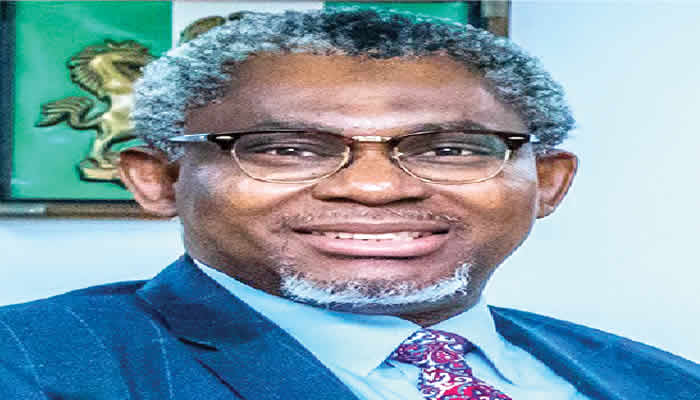
Odinaka Anudu in this report, writes on potential in Ajaokuta steel complex
For over three decades, Ajaokuta Steel Complex has been unable to meet the purpose for which it was set up.
Annual budgets are allocated to the steel complex, yet it is unable to produce a single sheet of steel.
There are a number of Nigerians that work in the complex, but experts say the government must cut its losses by handing it over to the private sector urgently.
Currently, steel makers are sceptical about its planned concession after Nigeria imported iron, steel and metals valued at N837.761bn in the third and the fourth quarters of 2021.
According to the National Bureau of Statistics, Africa’s most populous nation brought in basic metals, iron and steel products with 6000mm width, rolled, painted, varnished and coated with plastics within the six-month period.
The total value of basic metal products imported within the two quarters was N748.529bn, while that of iron and steel was N88.232bn.
This is happening after the Manufacturers Association of Nigeria estimated that the country had spent over $8 billion on the idle steel plant so far.
In the first three months of 2022, Africa’s biggest economy imported metals valued at N201.08bn. The value of iron and steel, however, was not captured by the NBS report in the first quarter of 2022.
Nigeria spent N1.038tn on iron and steel imports in the last nine months, according to The Punch’s calculation of the National Bureau of Statistics’ Foreign Trade Statistics.
In a similar fashion, the Federal Government pumped N21.3 billion into the moribund Ajaokuta Steel Complex between 2016 and early 2022. There were in the form of budgetary allocations.
Data collated from the appropriation bills available on the website of the Budget Office of the Federation showed that N295.1m was allocated to Ajaokuta in 2016, with N135.2m released by October of that year.
In 2017, the total allocation was N4.3bn, with recurrent expenditures at N3.9bn and capital expenditures at N354.1m.
In 2018, the total allocation was N4.3bn, with recurrent expenditures at N3.9bn and capital expenditures at N354.1m.
In 2019, the total allocation was N3.6bn, with recurrent expenditures at N3.3bn and capital expenditures at N262m.
In 2020, the total allocation was N3.7bn, with recurrent expenditures at N3.6bn and capital expenditures at N147.2m.
In 2021, the total allocation was N4.2bn, with recurrent expenditures at N4bn and capital expenditures at N253.9m.
In 2022, the Federal Government approved N853 million for consultancy services targeted at the steel complex’s concession.
In total, Ajaokuta Steel Complex has taken N21.3 billion within the six-year period.
Key players in the steel sector are worried about the level of steel importation into the country as well as the lack of functionality of Ajaokuta Steel Company and the Aluminium Smelter Company, located in Akwa Ibom. The smelter company is supposed to produce ingots for the production of roofing sheets in the country, but it is mired in legal quagmire.
Former Chairman of the Manufacturers Association of Nigeria Steel Group and Chief Executive Officer of Qualitec Industries, Engineer Oluyinka Kufile, said, “They should tell us who imported the steel products because some people claim that they are producing but are simply importing.”
He noted that there was a possibility that the importers did not pay import duties or paid so little to jeopadise the local steel sector.
He lambasted the Federal Government for keeping Ajaokuta Steel for a long time without handing it over to competent managers, expressing doubts over the planned concession of the steel plant.
“Is there anything working in Ajaokuta? Is anyone benefitting from it since it was commissioned? Have they not done concession before, which did not work? What makes anyone think it will work this time?”
On the Aluminium Smelter Plant, Kufile noted that Nigeria had not demonstrated enough will power to resolve the lingering issue.
“If your father created so many problems and you cannot resolve them, then you are not ready to move on,” he further said. Kufile said, “There is nothing happening in Ajaokuta Steel. The local companies that are supposed to benefit from it are dying off. Who then is gaining from it?” he queried.
He lampooned government policies for the weakening of the steel sector, noting that concessions of Ajaokuta done over the years had not worked due to lack of political will to put the plant into the competent hands.
“How many steel companies exist today? Initially, we were many in the industry, but today, we are not usually more than nine company representatives any time we have a sectoral meeting.”
The Federal Government recently engaged CPCS Transform Consortium at N853 million for consultancy services of Ajaokuta Steel Company, including the National Iron Ore Mining Complex in Itakpe.
But Kufile said time was ripe to take a decisive decision about the steel complex.
There has been a tussle between the Bureau of Public Enterprises and a Nigerian-American company known as Bancorp Financial Investment Group Divino Corporation.
In 2012, the Supreme Court had ruled that BFIG was the preferred bidder for the smelter plant, but the BPE is yet to hand over the plant to the company.
BFIG President, Reuben Jaja, claims that the BPE is frustrating the company’s attempts to take over ALSCON.
However, BPE Head of Public Communications Amina Tukur Uthman, in a statement sent to the correspondent recently, noted that the company defaulted in paying the initial 10 per cent of the bid price of $410 million within 15 working days as stipulated in the Request for Proposal issued to bidders.
She said that BFIG also failed to provide the strategic business plan and the Annexure, which was the technical agreement with Daewoo.
“The transaction was frustrated by BFIG’s non-compliance with the terms of the judgment, mainly, being the bid price and the re-negotiation of the SPA,” she said.
On Ajaokuta Steel, Export Manager of the Lagos-based Aarti Steel, Okhai Ehimigbai, said that rather than concession Ajaokuta Steel, the government should privatise it completely.
The Federal Government recently engaged CPCS Transform Consortium for N853 million for consultancy services of Ajaokuta Steel Company, including the National Iron Ore Mining Complex in Itakpe.
But Ehimigbai said, “We have had this kind of arrangement in the past that did not work. Why not privatise it?”
He said that the inactivity in Ajaokuta Steel had crippled the steel sector in Nigeria.
“If Ajaokuta is working, we will not be importing hot-rolled steel for production today,” he said.
He warned that the plant should not be handed over to a company from countries where iron and steel products were being imported.
According to him,“ If you hand it over the such a company, it will not like Ajaokuta to work, otherwise the country will lose business.”
The Punch had reported that Nigeria spent N20.4 bn on Ajaokuta Steel Company Limited from 2016 to 2021 despite its idleness.
The way forward
Economists and experts have expressed shock at the level of mismanagement going on at Ajaokuta, suggesting an unbundling of the plant before concession.
Chief Executive Officer of Centre for the Promotion of Private Enterprise, Dr Muda Yusuf, said bureaucracy, political interference and corruption were key issues affecting the success of the plant.
Yusuf said, “I worked there for a few years. They have a massive housing project, a machine shop where machines are fabricated, and a section producing construction materials.
“There is a need to unbundle Ajaokuta Steel before concession because it is a massive project. Then get the private sector involved, that is, a company with the technical and financial capabilities to manage it. You can decide to concession the power plant, then the machine shop and other segments differently,” he said.
A Professor of Ceramics Engineering, Patrick Oaikhinan, said, “Once the government is taking a big share in any corporation, the leadership is not always straightforward. Who were the experts that have managed Ajaokuta and why wouldn’t Nigeria be importing steel when competent experts are not allowed to manage it?”
An Economist and Accountant, who is also the Chairman of Manufacturers Association of Nigeria Export Group, Ede Dafinone, called for 100 per cent privatisation of the plant, rather than the proposed concession.
“Government can have a golden share, but the management should be free to make decisions on capacity and production issues,” Dafinone said.
He noted that failure of Ajaokuta to produce flat sheets, which were strategic in Nigeria’s industrialisation drive, was affecting the Nigerian manufacturing sector negatively.
A retired General Manager at Ajaokuta Steel, Mr Kunle Aiyedun, said successive governments after late Shehu Shagari lacked the will power to resuscitate the steel plant.
“Ajaokuta needs a lot of money. You cannot abandon it only to continue resuscitation later. The audit you do this year would be different from the one you do next year. So, we need political will power to get it somewhere,” he said.





